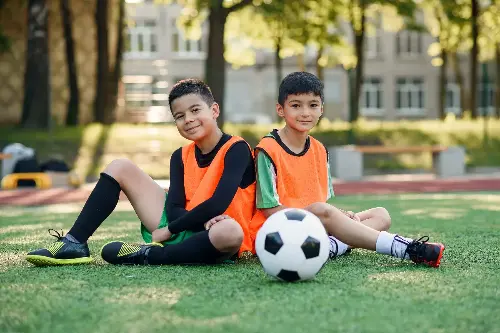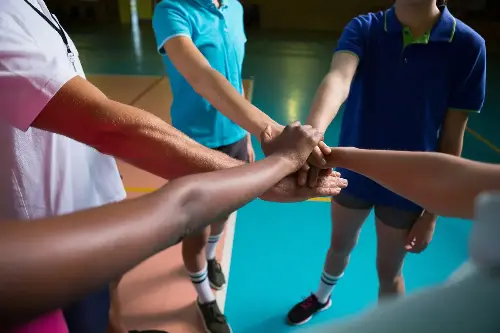In today’s fast-paced and digital world, parents are constantly seeking the best ways to help their children grow into thoughtful, capable adults. Beyond academic achievements, qualities like leadership, empathy, and the ability to pursue common goals are crucial for lifelong success. One of the most effective yet often underestimated avenues for developing these attributes is through team sports. Whether your child aspires to be the next badminton champion, enjoys weekend football matches, or finds joy in a quick basketball game with friends, the lessons on and off the field can be transformative.

THE MAGIC OF LEADERSHIP ON THE FIELD
Every parent dreams of their child gaining confidence and taking initiative. Team sports naturally offer young people essential lessons in leadership—without the pressure of a formal classroom setting. In a football team or a netball squad, leadership doesn’t always mean being the captain. It can also mean taking responsibility for one’s role, motivating teammates after a tough match, or stepping up to help direct a group during practice.
Research from the University of Cambridge reveals that children in regular team sports are more likely to demonstrate proactive problem-solving skills. These young athletes learn to make split-second decisions, communicate goals, and manage conflict constructively. Even shy children often find their voices as they gain respect within their teams, learning that leadership is as much about setting an example as it is about giving orders.
NURTURING EMPATHY THROUGH TEAMWORK
While scoring goals is thrilling, it’s the mutual support among players that makes team sports so special. On the pitch, your child quickly realises that the success of the team depends on each member’s effort. This shared experience fosters empathy in a unique, hands-on way. When a teammate is struggling or needs encouragement, children learn to listen, offer support, and understand another person’s perspective.
In fact, a study conducted by the National University of Singapore found that children involved in team-based physical activities are more likely to show a higher level of compassion and emotional intelligence compared to those in solo sports or non-sporting peers. This empathy not only strengthens team bonds but also carries over into friendships and family life, helping children to navigate social situations with understanding and respect.

THE SIGNIFICANCE OF SHARED GOALS
One of the most important lessons team sports impart is the power of pursuing shared goals. Training for a championship, executing a clever passing strategy, or simply aiming to improve teamwork in every game—these are objectives that can only be achieved together. Children learn to put aside individual interests for the good of the group, discovering the essence of cooperation and mutual commitment.
In Southeast Asia, the love for sports such as sepak takraw, volleyball, and cricket is often expressed through community competitions and school events. Participating in these sports allows children to see firsthand how shared goals create unity, discipline, and a sense of belonging. The collective mindset developed through team sports can also translate into academic group projects and, later in life, the workplace.
BUILDING RESILIENCE AND A POSITIVE OUTLOOK
Team sports are full of ups and downs—victories, losses, injuries, and moments of triumph. These experiences help children develop resilience and a positive attitude. Learning to bounce back from a defeat or cheering for others encourages a mindset that setbacks are part of growth, not reasons to give up. Coaches and teammates play vital roles, modelling constructive feedback and celebration of collective achievements.
Children who regularly participate in team sports often display higher self-esteem and reduced stress levels, according to the World Health Organisation. The fun of the game, combined with encouragement from peers and adults, creates a supportive environment where children feel safe to try new things and learn from their mistakes.

MAKE IT FUN AND STAY ENGAGED
As a parent, you don’t have to be a sports expert to encourage your child’s participation in team sports. What matters most is fostering a fun, pressure-free environment. Attend games, celebrate small victories, and let your child know that effort and teamwork are valued above all. In Southeast Asia’s diverse sporting landscape, there’s a team sport for everyone—whether it’s basketball, football, or even local games like takraw.
Beyond the trophies and medals, the real reward lies in the lifelong skills your child gains on the field. Leadership, empathy, and the pursuit of common goals are gifts that last long after the final whistle blows—helping your child grow, connect, and succeed in all walks of life.
